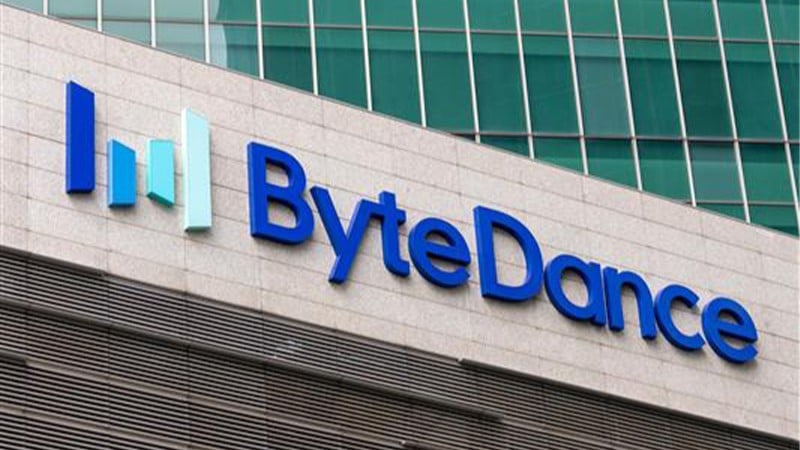May 2021
Article
Same direction, new terrain
Tom Slater – Manager, Scottish Mortgage
A year of crisis showed how share prices can fail to reflect surrounding social and economic turmoil.

The value of shares in Scottish Mortgage, and any income from them, can fall as well as rise and investors may not get back the amount invested.
We are focused on the long term. We do not believe that our returns in any given year convey much information about the strength or otherwise of our investment approach. Far longer periods are required to make such an assessment. We would caution against elation after the past twelve months just as we would counsel against misery following unprofitable years. To create long-term value, we seek companies pursuing big opportunities and investing in projects with uncertain payoffs. Their shareholders will need to hold their nerve, take the long view and offer thoughtful ongoing support. We aim to be one of those shareholders. It is the accomplishments of the entrepreneurs running our holdings that drive underlying wealth creation.
The past twelve months have offered some lessons for the long-term investor. The strength of stock markets in a period of such economic and social hardship highlights the tenuous link between economic predictions and share prices. Even if one believes that the time and effort spent predicting the outputs of a complex system such as the global economy are worthwhile, one ought in any case to be cautious about linking that to the prices for individual securities or for stock markets as a whole. Conversely, there are many quite predictable trends in communications, computation, machine learning, energy generation and storage, gene sequencing and synthetic biology that, as they compound over time, can have a huge impact. The vaccine developments that are allowing us to emerge from this crisis are just one example.

A small number of big winners have a dramatic impact on investment returns. It is not an anomaly that Tesla has contributed so much to the portfolio this year. It is a predictable consequence of the structure of stock market returns. You no longer need to inhabit the arcane world of investment to understand such results. Another example is all too familiar: the spread of Covid-19. The likelihood that you will suffer from the usual human ailments doesn’t change much from year to year. That is not true for a virus: the more people who have it, the more will get it. It scales in a non-linear way. It can quickly achieve a prevalence that is unfathomable to those outside the world of infectious disease. Most stock prices don’t change much from year to year either but the outliers grow with the same underlying maths as viral spread. Success often begets success and economic advantage accrues highly unequally. Most financial theorists ignore this inconvenient fact, but our approach is designed to capture the outsized impact of such companies.
Changes that were already underway in our society have been accelerated by the impact of Covid-19. This makes it an especially challenging time for those that embrace the concept of mean reversion. We hope we can look forward to normality returning in the year ahead, but “normality” does not mean that things will return to the way they were before the pandemic struck. Whilst the basic tenets of human nature are unchanging, the ways in which we work, consume and socialise are not. Lockdown restrictions over the past year have triggered a reappraisal of historic habits and rituals and many will be superseded. This creates opportunities for entrepreneurs: it changes supply chains and drives demand for new products and services.
Scientists had been clear about the potential for a global pandemic for some time, but their warnings had not prompted the necessary preparation. The apathetic response to similar scientific warnings about climate change ought now to be questioned. While we hope that lessons will be learned by our institutions and governments, we can also take inspiration from the leadership that the corporate sector has shown in delivering us from Covid. As with vaccines, so with decarbonisation: the value that Tesla has created by addressing the need to decarbonise has forced a hostile investment community to reconsider its position. Tesla has become one of the world’s largest companies as its highly-rated products have continued to improve, along with its ability to manufacture them at scale. Other companies are now following, and history tells us that the more generous funding environment that has ensued is a prerequisite for further progress. Over the course of the year we sold around 80 per cent of our Tesla shares as we strove to maintain appropriate diversification and to focus on the long-term return potential. It remains a large holding. The head start it has on competitors leads us to believe that it could enjoy a long period of comparative advantage. If it can realise the potential of its AI capabilities and make its fleet largely autonomous, then this advantage will be greater still.

We are focused on finding other companies that will build the post-carbon economy. This year we took a new holding in Northvolt, a company led by a former Tesla engineer, which is aiming to become Europe’s largest suppliers of batteries for electric vehicles. It is investing heavily in the face of strong demand. We also took a holding in ChargePoint, which is one of the world’s largest electric vehicle charging networks. The way in which we will charge our electric vehicles will not resemble the model we used for gasoline cars. Instead, parking spaces at home, in the workplace and in parking lots will provide energy. Software will play a critical role in managing this infrastructure.
The broader field of transport and logistics is throwing up a number of exciting investments. We have grown accustomed to having more products delivered to us at home. With scale, companies are building out the capabilities to serve us faster and more efficiently with a rapidly growing selection of products and services. Meituan in China and Delivery Hero in south east Asia now have the order frequency and distribution infrastructure to move beyond prepared food and into grocery and convenience offerings. Doordash, is doing something similar in the US. Meanwhile, we have purchased holdings in Ocado and GoPuff. Ocado’s grocery offering is performing strongly and profitably in the UK and there is increasing interest from grocers around the world in implementing its technology. GoPuff is seeking to replicate the traditional convenience store with a delivery offering which has proved popular on US university campuses and is expanding into a more general setting.
Within our investment horizon, it is likely that these companies will start transitioning from human to robot delivery. Zipline has refined the performance of its autonomous fixed-wing aircraft while delivering medical supplies in sub-Saharan Africa. It is now launching in the US and delivering a broader range of products. Meanwhile we have taken a new holding in Nuro which is developing ground-based autonomous delivery vehicles for last mile delivery which should help to further reduce the cost of home delivery.
From transporting goods to transporting people: in the course of the year both of our flying taxi holdings, Lilium and Joby, took advantage of the buoyant funding environment to embark on a course to the public markets. Substantial capital is required for certification to carry passengers, so large rounds of funding are important. We are sceptical that the accompanying public listing is the right structure to provide long-term support for these companies at this stage of their development.
Many of us have marvelled at SpaceX’s achievements as it has increased its pace of reusable rocket launches and sent the first astronauts to orbit in a commercially-built craft. SpaceX has ushered in a new era of dramatically lower launch costs which is spurring innovation and experimentation. Satellite communication will be one of the first applications but many more are likely to follow. We have continued to build up our holding in SpaceX. We have also initiated a new position in a smaller rocket company, Relativity Space, which is aiming to reduce launch costs for smaller payloads using 3D-printed rockets.
Back on earth, we think the application of modern technology to healthcare offers some of the most exciting investment opportunities for the next ten years. We took a new holding in Moderna, which develops and produces RNA-based therapies. It became a household name through the success of its RNA vaccine for Covid-19, but the technology’s potential is far wider. Moderna bears resemblance to a software company. It writes RNA code to programme human cells and enjoys an attendant scalability in its business model. Its success with coronavirus helps to de-risk other drugs in its vaccine pipeline. The company is seeking to address a much broader swathe of diseases and its transition from a clinical to a commercial-stage company improves the odds of success.

Recursion and Tempus are applying the cutting edge of existing IT more directly. Recursion is building a new model for drug discovery driven by machine learning and experimental biology at an unprecedented scale. It has automated the role of the scientist at the laboratory bench and is able to do millions of experiments per week. It is testing a huge library of compounds on many different disease states in human cells and using machine learning to process the output. This is already translating into new therapies. Tempus is sequencing the tumours of cancer patients and matching that genetic information to medical health records, creating a vast repository of accurate healthcare data. It is applying machine learning to this data on behalf of physicians to determine the therapies that are most likely to be successful for patients, based on individual circumstances. This approach has the potential to transform how cancer is treated.
The Trust’s exposure to China grew over the course of the year. Our largest holding, Tencent, has navigated a difficult regulatory backdrop and is executing well in its core business. In addition, its management team ought now to be considered some of the world’s greatest investors. Over the past decade they’ve used their cashflows to build a portfolio of both public and private investments worth close to $200bn. The pace of innovation at scale in China now exceeds anything we can find in the rest of the world. Pinduoduo was founded in 2015 and has already overtaken Alibaba’s audience size in online commerce with more than 750m users. Meanwhile, the world’s most valuable private startup, Bytedance, dominates China’s online advertising landscape less than a decade after its founding. We added to most of our Chinese positions through the course of the year as well as taking new holdings when we have seen new breakthrough companies emerging. Less encouragingly, the planned IPO of our private holding in ANT Group was pulled as a result of regulatory intervention. ANT and its parent, Alibaba, have a long history of occasionally tumultuous but eventually good relations with regulators and we expect that they will defuse these tensions over the months ahead.
We sold out of our holdings in Facebook and Alphabet (the parent company of Google) as well as making reductions to Amazon. These companies generate prodigious cashflows and have grown at a remarkable rate. For us, the questions now are around how they deploy their resources in the future and retain their growth credentials at vast scale. We think Amazon still enjoys the broadest set of opportunities, but we are wary that Jeff Bezos stepping back from the CEO role may reduce the company’s appetite for bold experiments.
The competition for capital in the portfolio has been, and remains, intense. A process of renewal and change is creating new growth opportunities across a wide range of industries and countries. We have been able to reinvest the proceeds from the big online network businesses into companies that are tackling some of humanity’s biggest challenges in healthcare and decarbonisation. When a large and evolving opportunity sets are matched with entrepreneurial companies and a determinedly long-term outlook, the conditions are ripe for exceptional growth businesses to emerge.
Scottish Mortgage Annual Past Performance (%) To 31 March each year
|
|
2017 |
2018 |
2019 |
2020 |
2021 |
|
The Scottish Mortgage Investment Trust PLC |
40.9 |
21.6 |
16.5 |
12.7 |
99.0 |
Source: Morningstar, share price, total return. Past performance is not a guide to future returns.
About the author - Tom Slater
Manager, Scottish Mortgage
Tom Slater is manager of Scottish Mortgage. He joined Baillie Gifford in 2000 and became a partner of the firm in 2012. Tom joined the Scottish Mortgage team as deputy manager in 2009, before assuming the role of Manager in 2015. Beyond that, he is the head of the US Equities team and a member of another long-term growth equity strategy. During his time at Baillie Gifford, Tom has also worked in the Developed Asia and UK Equity teams. Tom’s investment interest is focused on high-growth companies both in listed equity markets and as an investor in private companies. He graduated BSc in Computer Science with Mathematics from the University of Edinburgh in 2000.
Important information and risk factors
The value of shares in Scottish Mortgage, and any income from them, can fall as well as rise and investors may not get back the amount invested. Investment markets and conditions can change rapidly.
The trust has a significant investment in private companies. The trust’s risk could be increased as these assets may be more difficult to sell, so changes in their prices may be greater. The trust invests in emerging markets where difficulties in dealing, settlement and custody could arise, resulting in a negative impact on the value of your investment.
The views expressed in this article are those of the author and should not be considered as advice or a recommendation to buy, sell or hold a particular investment. They reflect personal opinion and should not be taken as statements of fact nor should any reliance be placed on them when making investment decisions.
This article contains information on investments which does not constitute independent research. Accordingly, it is not subject to the protections afforded to independent research and Baillie Gifford and its staff may have dealt in the investments concerned.
Baillie Gifford & Co Limited is authorised and regulated by the Financial Conduct Authority (FCA). The investment trusts managed by Baillie Gifford & Co Limited are listed UK companies. Scottish Mortgage Investment Trust PLC (Scottish Mortgage) is listed on the London Stock Exchange and is not authorised or regulated by the FCA.
A key information document is available here.
52560 IND WE 2026






